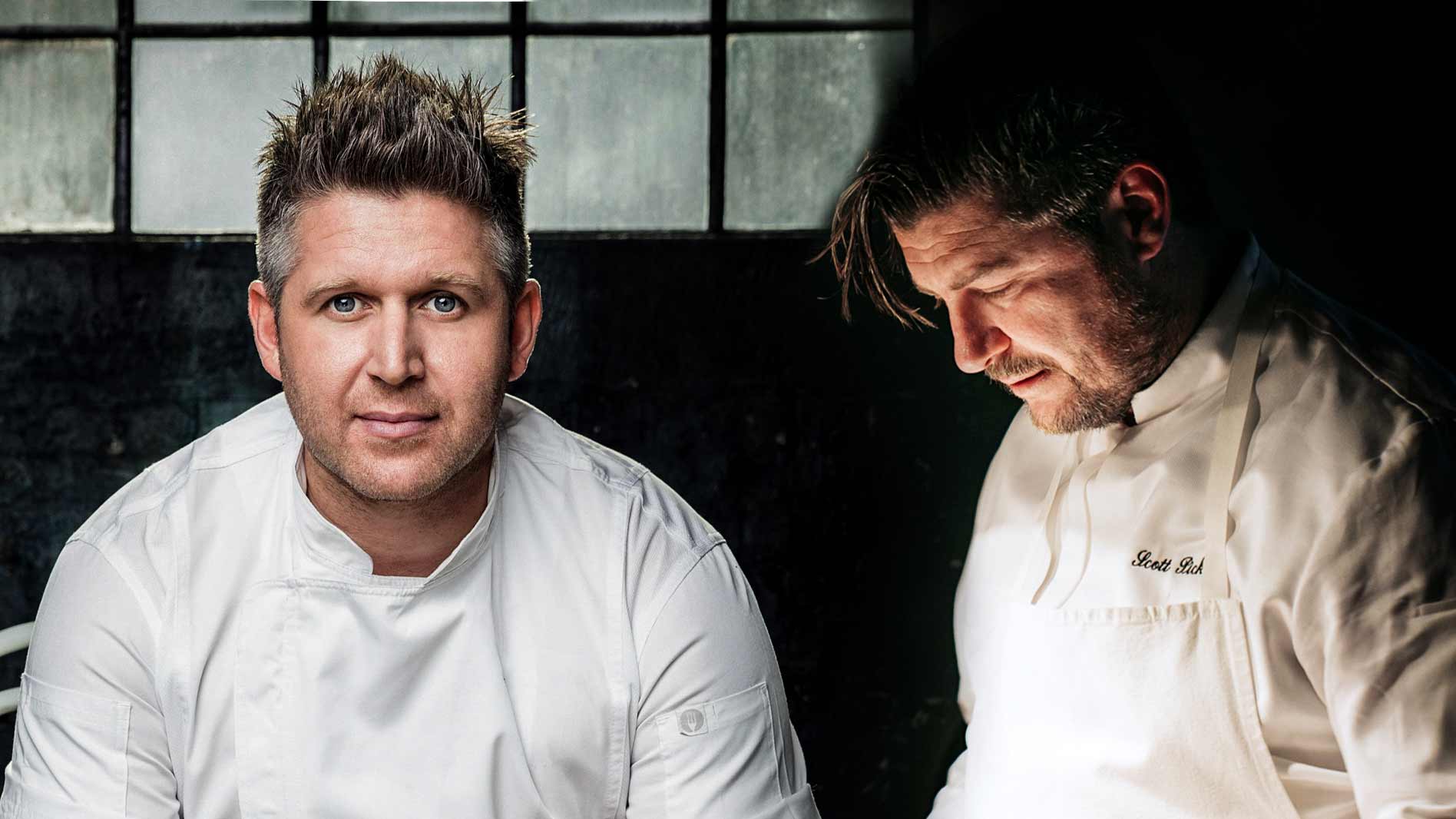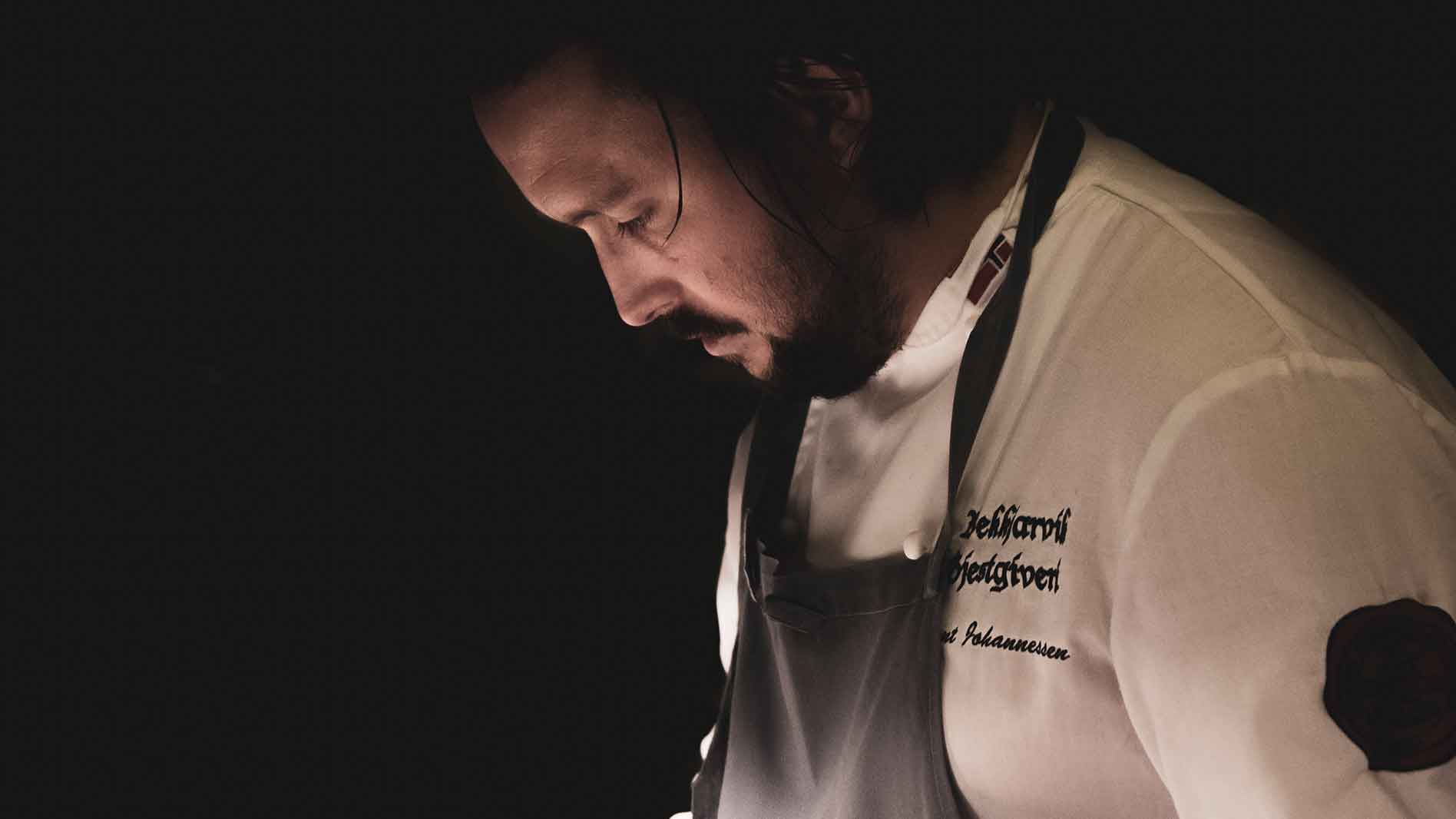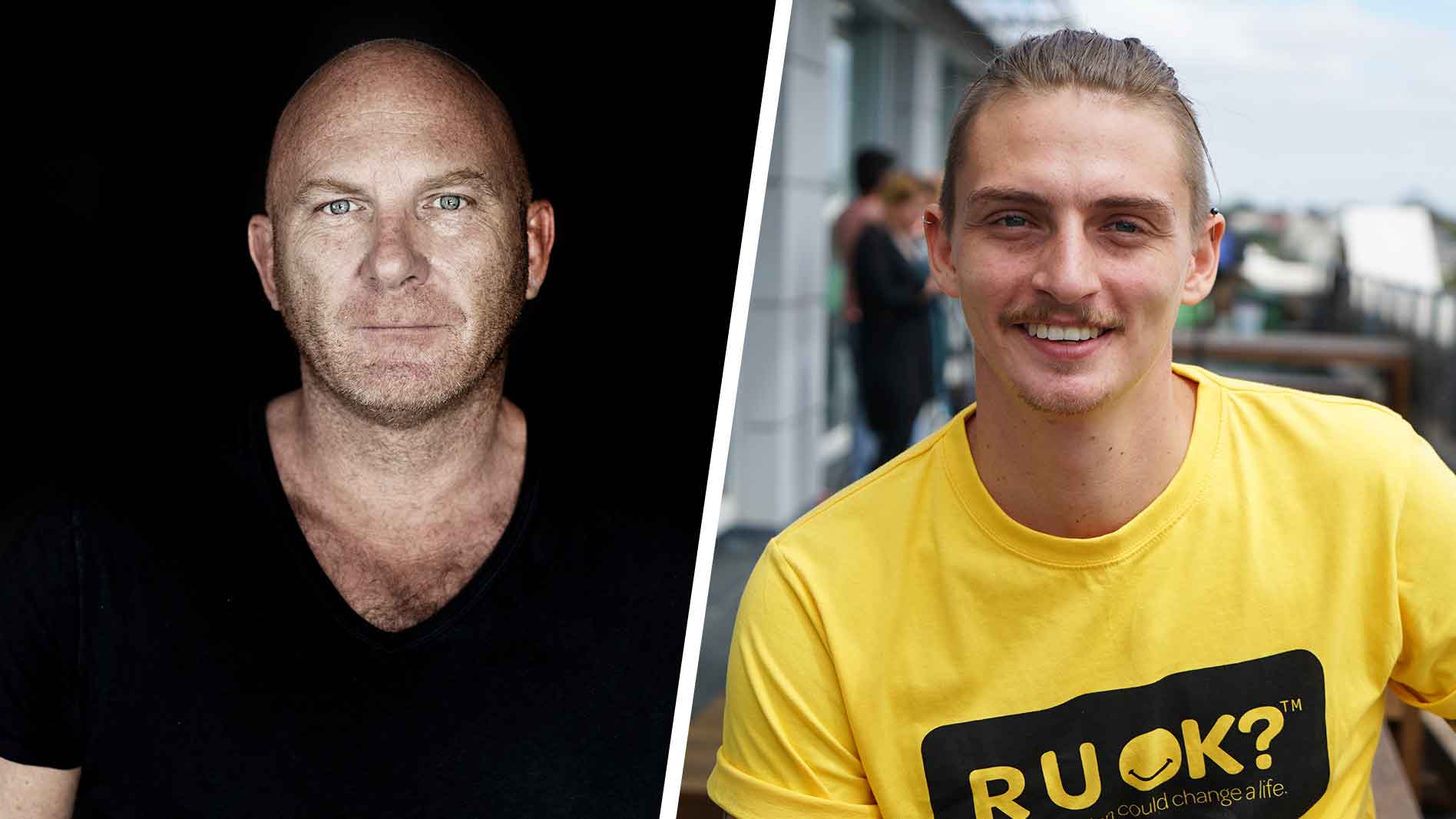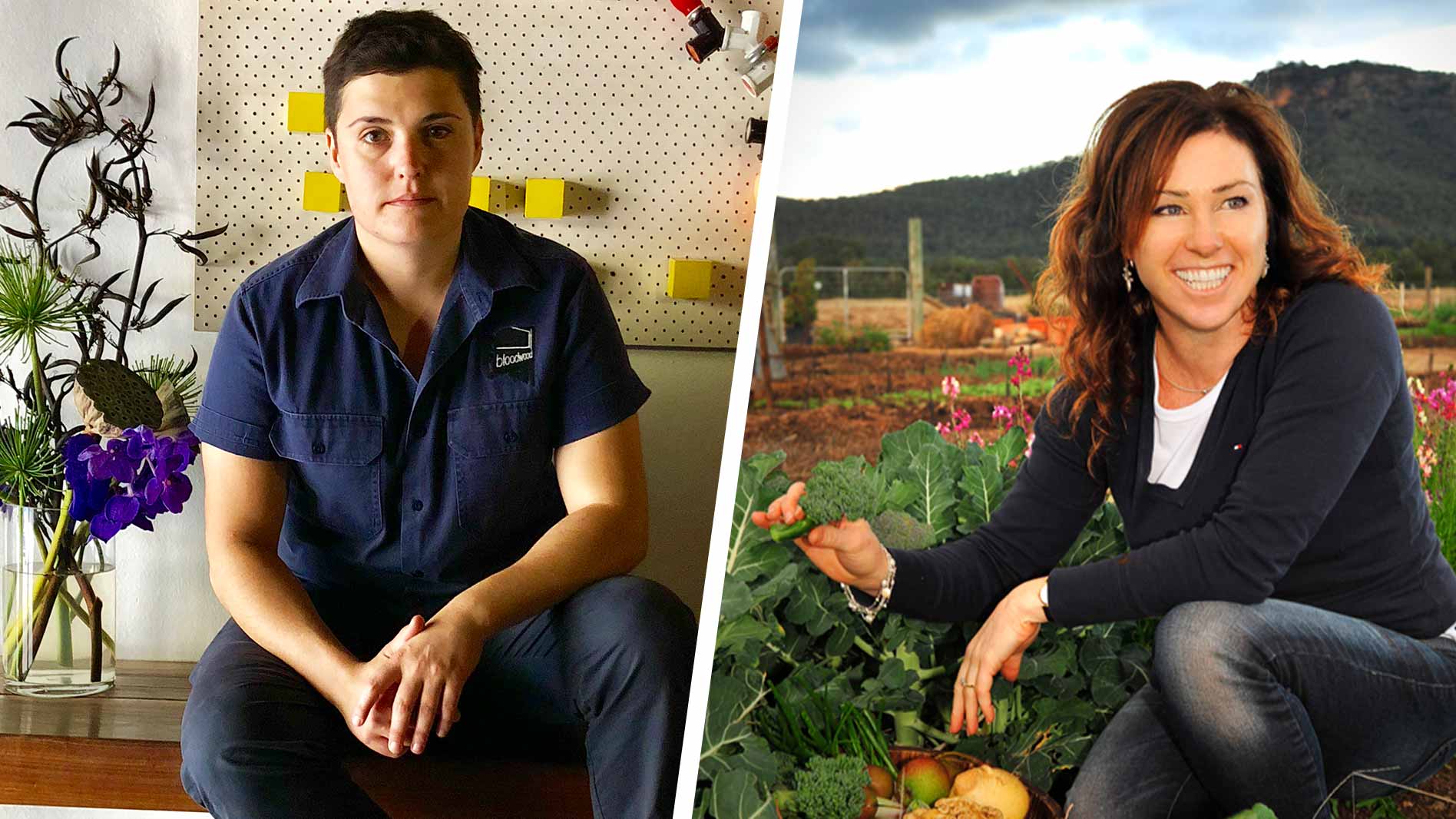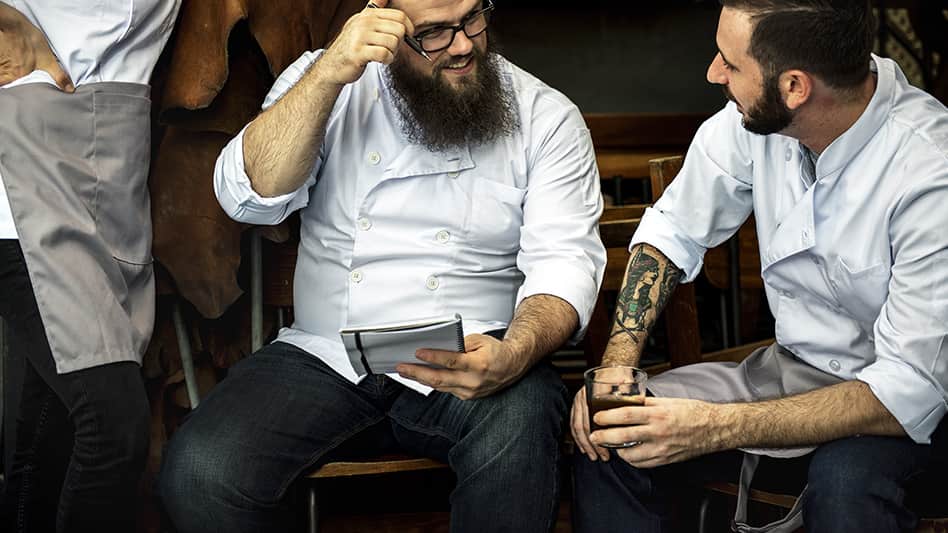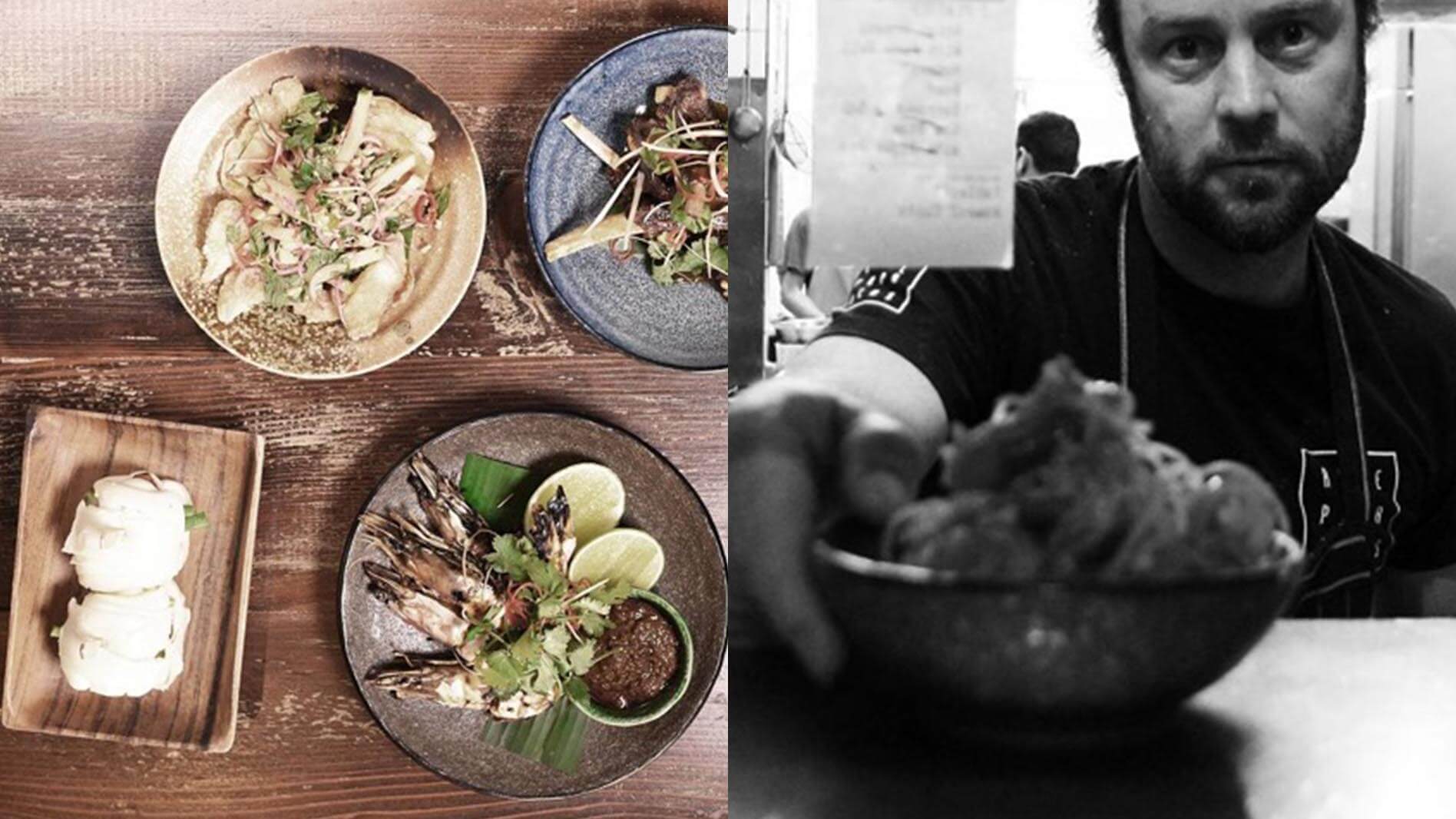Be inspired with recipes created by chefs.
Sign up for updates about products, special offers, news and promotional materials from Goodman Fielder.

Summary
Kitchens can be a lonely place; where days quickly turns into nights and the weekends become non-existent. It’s a place where the adrenaline rushes feel like you’re on a roller-coaster that just never stops. It’s an environment full of different pressures, so when you crash, it’s a hard fall. So, it’s no wonder mental health conditions in the kitchen are on a rise.
After being isolated from the rest of the world and limited time spent with loved ones, it’s no surprise mental health conditions within hospitality are at an all-time high. Each year, more than one million Australians suffer from depression, while over two million battle with anxiety. While suicide remains as the leading cause of death for Australians aged between 15 and 44, a recent report by The Australian Bureau of Statistics found suicide rates increased by more than 9% compared to the previous reporting period.
CEO of On The Line, Kim O’Neill backed the claims, stating they reported a 23% increase in calls answered via the Suicide Call Back Service Line, while MensLine Australia had a 27% increase over the past 12 months. “These statistics are a reminder to all that we need to speak up and ask for help,” she said. “We need to look out for our friends, family and co-workers and ask if they need our help.”
Looking closer at the kitchen, 80% of hospitality workers have admitted that mental health is a challenge faced by the majority within the industry. The older demographic consider high employee turnover and frequent staff changes as the biggest contributor, while the younger found unsociable work hours, dealing with difficult customers and pay challenges as stressors, according to R U OK.
The report also claims 50% of respondents said they had been asked by someone at work if they were okay when they really needed it, while 40% had thought about asking but didn’t. R U OK? Campaign Director, Katherine Newton explained that while the conversation has begun within the industry, the results prove more work needs to be done to help hospitality workers feel comfortable checking in with each other.
So, to help raise awareness and prove no one is alone, renowned chefs Scott Pickett and Massimo Mele share their own private stories.
How Scott Pickett faced his mental health issues
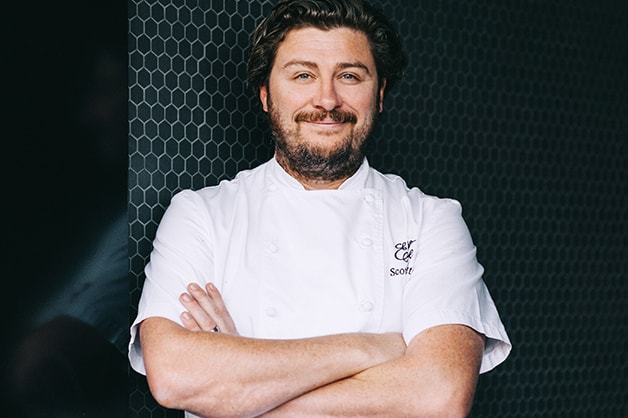
Renowned Chef Scott Pickett. Image by Dominique Cherry
He started his career in hospitality when he was just 14, working as a kitchenhand before moving up the ranks. Over the years, Scott Pickett went on the become an award-winning chef, worked at Michelin star kitchens, launched multiple restaurants and released an autobiography, which gave an insight of what life was like working in the kitchen. Despite the success under his belt, the Aussie chef has battled his own private demons.
In an exclusive chat with Goodman Fielder Food Service, Scott laid out his struggles in a bid to help raise awareness of mental health and to show his colleagues, “everyone has problems, everyone has a story, everyone has a history.” After years of working in the kitchen, the renowned chef began self-medicating himself with alcohol to deal with the ongoing pressures. “For 20 years I drank pretty heavily. I self-medicated myself through the industry, through hours, through stress, through relief, through winding out,” Scott admitted before referring to himself as a “hard partier”.
“Everyone has problems, everyone has a story, everyone has a history.”
“The first year of Estelle was the first time I didn’t have anyone to rein me in, so I went pretty wild,” he explained. “I worked six or seven days a week and I partied six or seven days a week…and like most chefs, I am a control freak, I am obsessive, I am focused, I am driven. I have a huge amount of energy and I have been successful, so I didn’t think it [drinking] was a problem,” Scott confessed. But once he started to lose control of things around him, the chef admitted he knew it was time for him to “put my hand up and ask for help”.
“I was just in this cycle that I just couldn’t break and I knew that I needed help,” he said. Following his 36th birthday Scott “went to rehab for two months and now I am still clean and sober” seven years on. Despite being in a healthier, happier place now, Scott admitted he wouldn’t be where he is if it wasn’t for the support he received when he needed it. “To seek help and to have that given to me was a really humbling experience and something I thought about for many years beforehand,” he said. “I had some good people around me and I was just ready. I was ready to work through it and make some life choices and make some decisions.”
“We all make mistakes, we all have tough days but just keep chipping away.”
And when it came to his colleagues, Scott encouraged everyone to speak out and ask for help. “There is nothing wrong with asking for help or for reaching out…We all make mistakes, we all f**k things up, we all have tough days but just keep chipping away and working and if you do need help or support then just reach out and ask for it,” he insisted. “It doesn’t make you weak or insecure.” Thinking back on those before him who have taken the step on getting assistance, Scott was full of praise. “I am proud of all the guys and girls who struggle with these things in the business. If they can accept and identify that [they need help], they are half way there and they should be proud of the fact that they’re reaching out and asking for support.”
Why Massimo Mele thought it was time to put his hand up:
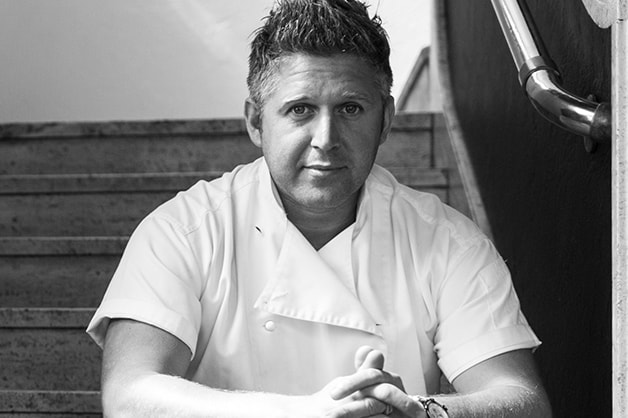
TV personality and successful chef, Massimo Mele
Restaurateur, award-winning chef, tv personality, husband, father and son – Massimo Mele does it all. From the outside looking in, his long career in the kitchen has been nothing but a success story to tell. But behind closed doors, Massimo admits there have been some dark days; some days where he thought he couldn’t see a future. “From the outside it looks amazing but it’s not. Its f**king relentless,” he admitted to Goodman Fielder Food Service. “The reality that we promote on social media should be banned because the reality is that life is relentless, it is hard and it is consuming what we go through.”
“The reality we promote on social media should be banned because the reality is that life is relentless, it is hard and it is consuming.”
After working in numerous kitchens and building up his professional career and image, Massimo ventured out on his own. But after two false starts in Sydney and family commitments back in Tasmania, the chef packed up the life he once loved and thrived on to move home. “For me, I had a couple of false starts. I had a life in Sydney with restaurants that didn’t go ahead and then moving to Tassie and being out of sight, out of mind, you literally feel like you’re not relevant anymore,” he disclosed. While admitting he only recently became aware of his own mental health issues, the father-of-two explained that once he took a step back from the hustle and bustle of the kitchen, his self-worth and relevance become questionable.
“All of a sudden, I stopped. I lost my identity,” he said. “When I came back [to Tasmania], I was so alone, and the industry changed so much and I didn’t click with anyone, I didn’t fit in anywhere.” Massimo added that while he worked to rebuild his career, he was “dealing with the issue of resenting [himself] for making that decision to walk away.” When reflecting on his choices, he called the experience an “emotional roller-coaster” due to him being “emotionally invested in the job” of being a chef. “When you are passionate and you are creative and you really love what you do and all of a sudden, you’re not doing it [anymore], that f**king hurts,” he admitted. “That really messes with you.”
“When you really love what you do and all of a sudden, you’re not doing it [anymore], that hurts.”
Despite only recently coming to terms with his own mental wellbeing, Massimo has taken the step to open up to his wife, close friends and now the broader industry in hope to show everyone they aren’t alone. And that despite what social media displays, there are people of all ranks making their way through the dark tunnels ahead. While he continues to work on himself, Massimo has become the friend who’s always there for a chat; the friend that continues to check in when times get tough – allowing his own battle to help guide others. “It may not be an hour conversation, but just letting them know you are there is important,” he said, as he encouraged colleagues to pick up the phone and send a simple text or call. While admitting he doesn’t “know how to fix it” he believes more honest conversations can change the way mental illness is perceived, not only in hospitality but on a larger scale. “Start that conversation. It is probably the best conversation to start,” he expressed.
How you can help your colleagues:
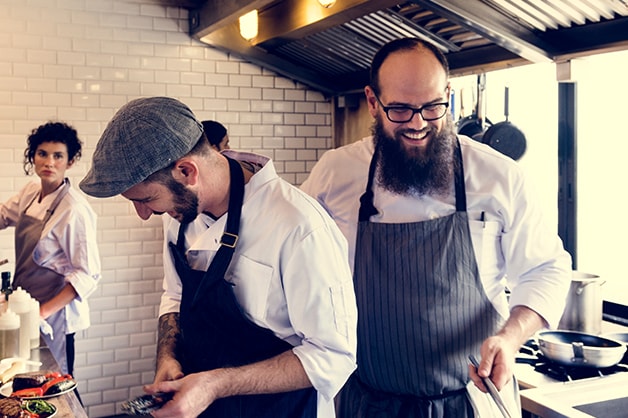
Starting the conversation with your friends, family and colleagues is a hard pill to swallow sometimes. Building up the courage to ask if they are okay or if they need a helping hand can take some time, but it can also save a life. But how do you start that conversation? What are some warning signs you should look out for? And how do you help someone who has the bravery to accept the assistance they need?
Rachel Clements – Director of Psychological Services at the Centre for Corporate Health explained to Goodman Fielder Food Service one’s mental health can deteriorate quickly in hospitality, so keeping an eye on behaviours and moods is a simple way to initiate the conversation. “You can’t afford to have that ‘meh, I will wait for him to come to me’ attitude because people in the industry can shift so quickly from the early stages of becoming a little unwell to becoming very unwell,” she said. Ms Clements added “disconnection, pulling away from others, becoming more withdrawn,” are common signs to look out for.
“Just listening is one of the most powerful things you can give someone.”
“If you ask someone ‘hey, are you okay,’ you will probably get a ‘yeah, I am fine’. So, you need to come into those conversations with a little bit more like, ‘I have noticed you are not yourself, are you okay.’ That is very, very strong,” she said. Ms Clements insisted, then just listen. “Listen without judgment, listen without problem solving, listen without troubleshooting, listen without having all the answers. That is one of the most powerful things you can give someone because chances are you are the only person that has had the courage and the confidence to start that conversation with them,” she said. Once the individual has accepted help, “use the language of connectiveness. It is very much around we and together.” Ms Clements added that it is important to reassure them that it is okay not to be okay, that they are not alone and they will get through it.
To provide guidance in having the conversation, Centre for Corporate Health have developed courses and guides to help businesses, big and small, manage mental health. The courses are designed to help people notice the signs of someone struggling, how to find the right space and time to ask the question and how to navigate a conversation.
Conclusion:

We live in an era where customer demands are increasing and the need to deliver foods that are not only on-trend, but also Instagram-worthy and full of flavour. With more restaurants opening, the stresses of working within hospitality continues to rise. So, while it is well and good to check in on your mate every September as part of R U OK Day, asking if they are okay regularly and developing open, frequent conversations has never been more important.
A simple conversation where you ask, listen and encourage action can be enough to save someone from a long, dark road ahead. It can be enough to help someone beat the demons they are currently facing alone. It is important to remember, depression is more than just a low mood – it is a serious condition that affects someone’s physical and mental health. And anxiety is more than just feeling stressed or worried, it is the anxious feelings that don’t go away. By simply asking, are you okay, you can stop someone from becoming a statistic.
If you or anyone you know needs help, please contact the below helplines:
- Lifeline: 13 11 14
- Suicide Call Back Service: 1300 659 467
- Grief Line: 1300 845 745
- Beyond Blue: 1300 224 636
- Men’s Line Australia: 1300 789 978
Related Ideas
27th November 2019
The Four-Day Work Week: Could This Be the Solution to the Current Chef Shortage?
Could the four-day working week help the hospitality industry? Could this finally be the answer to the current chef shortage in Australia?
28th February 2019
The hidden secret of our kitchens: Eating disorders in the hospitality industry
These days, chefs are suffering from eating disorders, likely to be triggered by the long hours and demanding pressures of the kitchen. Hear their stories.
5th September 2018
Mental Health: The Problems Faced by Chefs in the Kitchen
In the wake of the tragic death of Anthony Bourdain - Matt Moran and Mal Meiers open up on their experiences and knowledge of mental health.
